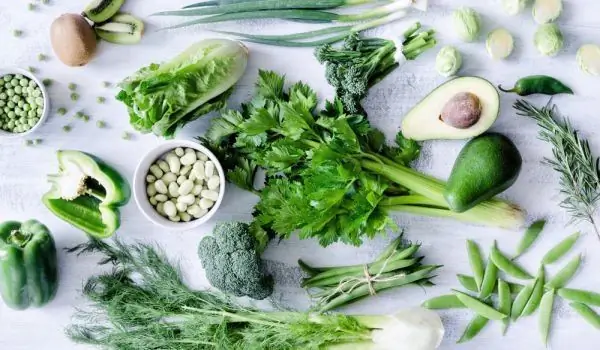2025 Author: Jasmine Walkman | [email protected]. Last modified: 2025-01-23 10:18
The kidneys are one of the most blood-supplied organs. They participate in a number of body functions: regulation of the body's internal environment (homeostasis), in the exchange of water and electrolytes, regulation of blood pressure, synthesis and breakdown of hormones and others. That is why it is very important to have a diet when a person suffers from kidney disease.
Every day in our menu there are the main ingredients of food - proteins, carbohydrates and fats, as well as a number of additional substances - vitamins, minerals, trace elements and more.
The kidneys are involved in the separation of end products from protein metabolism. In order for these processes to proceed normally, it is necessary to supply about 1.5 g / kg of body weight of protein. Rich in protein are: meat, fish, legumes, dairy products, nuts.
Fats provide the body's energy needs. They are composed of saturated and unsaturated fatty acids. The former are found in foods of animal origin and should be limited but not completely excluded. Unsaturated fatty acids are present in foods of plant origin and in fish, and they should be part of the diet.
Carbohydrates are also an energy source for the body. These are: potatoes, rice, pasta, sugar, honey and more.

The daily energy intake takes into account the physical activity, gender and age of the person. In initial kidney disease, it is 35-40kcal / kg body weight. In chronic kidney disease, energy intake is 30-35kcal / kg body weight. When there is a lack of calories, the body begins to break down its own proteins, increase the end products of protein metabolism and increase creatinine levels in the blood. If there is a problem with providing the necessary energy needs, the food can be fried instead of boiled or baked. There is no universal diet for kidney patients. For various kidney diseases, certain dietary restrictions must be observed.
Chronic renal failure: The diet includes limited protein intake (0. 8 - 0. 6g / kg body weight) and phosphorus (600 - 800mg / day) to slow the progression of the disease and reduce the toxic effects of the end products of protein metabolism.
This low-protein and low-phosphate diet also reduces calcium intake. Therefore, it must be compensated with drugs. In the advanced stages of the disease, restrictions include red fruits and vegetables because they are high in potassium.
Acute renal failure: There are 4 phases. The diet should be supervised by a doctor in a hospital. During the recovery period, quality vitamin food is recommended.

Kidney stone disease: The diet will not remove the stones that have formed, but may prevent the formation of new stones and limit their growth. It includes plenty of fluids (over 2l / day), herbal teas, compotes, vegetable soups, cooked or baked foods. It is not recommended to eat spicy foods, salt and canned food.
Pyelonephritis: The diet includes foods and fluids that stimulate the excretion of urine - intake of plenty of fluids, compotes, alkaline mineral water, herbal decoctions of bearberry or stalks of cherries and sour cherries, cereals and milk, more fruits and vegetables (apples, cherries), cucumbers) with minimal or no heat treatment. As spices can be used savory, mint, paprika. It is recommended the so-called. "zig-zag" diet, which alternates meat food with fruit and vegetable food. This changes the pH of the urine and creates unfavorable conditions for the development of bacteria. Prohibited foods are: spicy, salty, canned foods and alcohol.
Glomerulonephritis: Strict control of water balance and adequate fluid intake is required. The diet includes fresh and lean poultry and beef, unsalted dairy products, fruits and vegetables. Prohibited foods are canned meat and fish, offal, broths and alcohol. Protein intake should be controlled!
The kidneys are involved in maintaining the water-electrolyte balance in the body. Therefore, the amount of water intake is very important and is determined individually for each person. In the early stages of kidney disease, diuresis is significant and it is good to drink more fluids.

As kidney disease progresses, diuresis decreases, the kidneys cannot maintain water balance, and fluid intake should be limited. The required amount can be determined by the following simple formula: excreted urine + 500 ml = required amount of fluid.
It should be remembered that almost all foods contain sodium. When you need to limit salt intake, you can use sour foods or spices that are useful with their diuretic effect: dill, parsley, rosemary, mint, tarragon, black and white pepper.
Recommended:
Do Your Kidneys Hurt Constantly? Clear The Pain With This Homemade Mixture

Urinary tract infection is an extremely uncomfortable condition, it is recurrent and the treatment lasts a very long time. Those who have suffered from such an infection know how persistent and painful it is. One of the most important things to start treating such an infection is to drink plenty of water.
Little Tricks To Feed Your Children Healthy

We all like to eat delicious food and think less about the effects of unhealthy products on our menu. But when it comes to our children, it is important that their food is not only delicious but also useful. Children are still developing eating habits and it is important that we guide them to the right food.
Feed Your Brain And Intellect With These Products! They Really Work

A specific pigment in leafy vegetables stops the breakdown of crystallized intelligence that comes with the accumulation of stress and age, scientists have discovered. Crystallized intelligence is the ability to use knowledge, experience and skills acquired throughout life.
Feed Your Child These Easy And Nutritious Recipes

We all know that the child's food should be stored under appropriate conditions, given only a fresh or no more than a day portion, be careful with the products used in its preparation. As complicated as it may sound at this stage, this is not such a daunting task.
Eat Your Breakfast Like A King, Your Lunch Like A Prince, And Your Dinner Like A Poor Man

No more strict diets and long lists of forbidden foods! . Anyone who wants to lose weight, but finds it difficult to constantly limit themselves to different foods, can now relax. It turns out that the secret is not only in what we eat, but also when we consume food, Popshuger reports.

